Bani Abidi
They Died Laughing
06 Jun - 22 Sep 2019
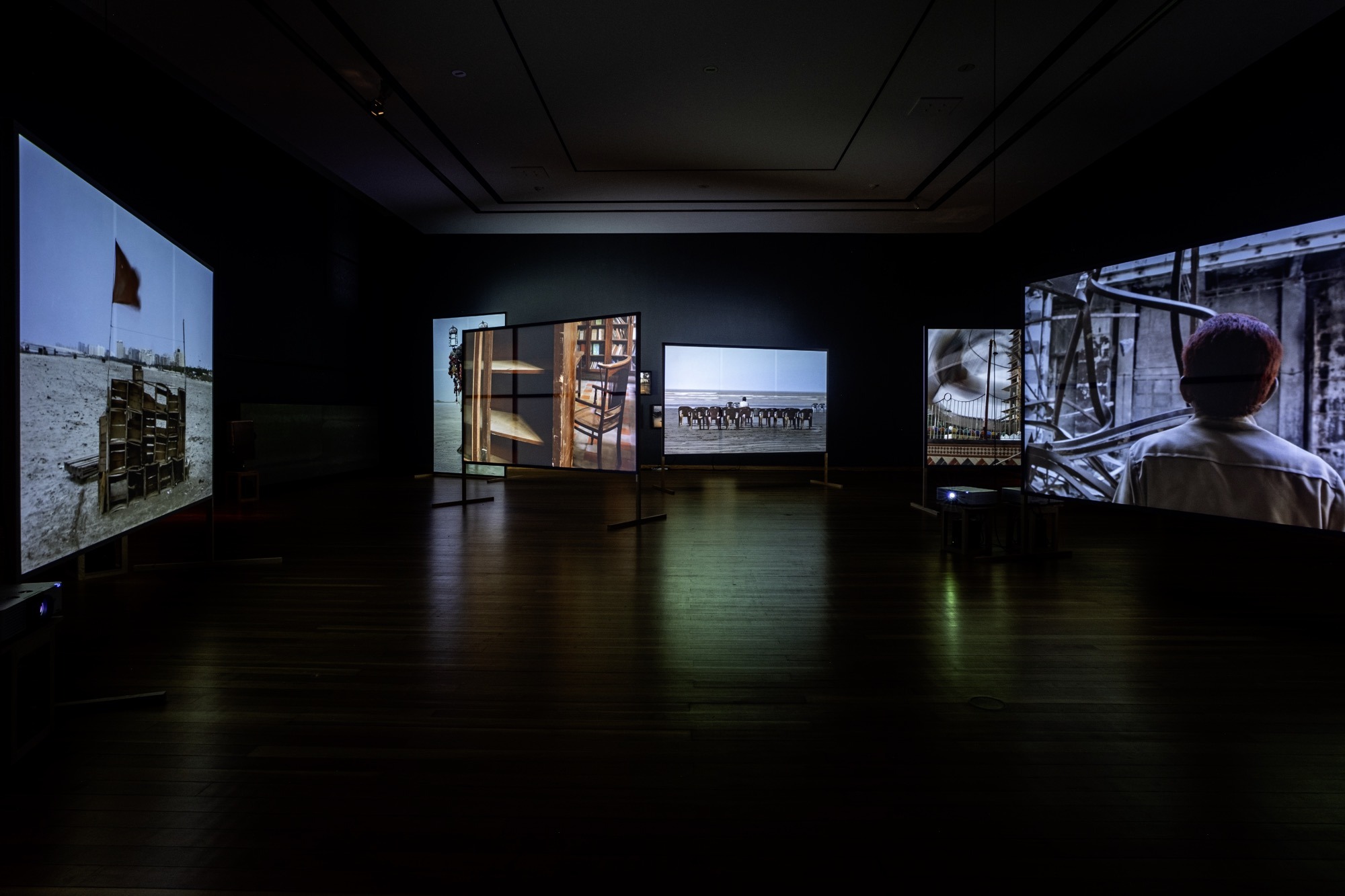
Bani Abidi, “‘Funland’ (Karachi Series II)”, 2014. Installation view Bani Abidi: They Died Laughing, Gropius Bau, Berlin, 2019. Photo: Mathias Völzke, courtesy the artist & Experimenter, Kolkata
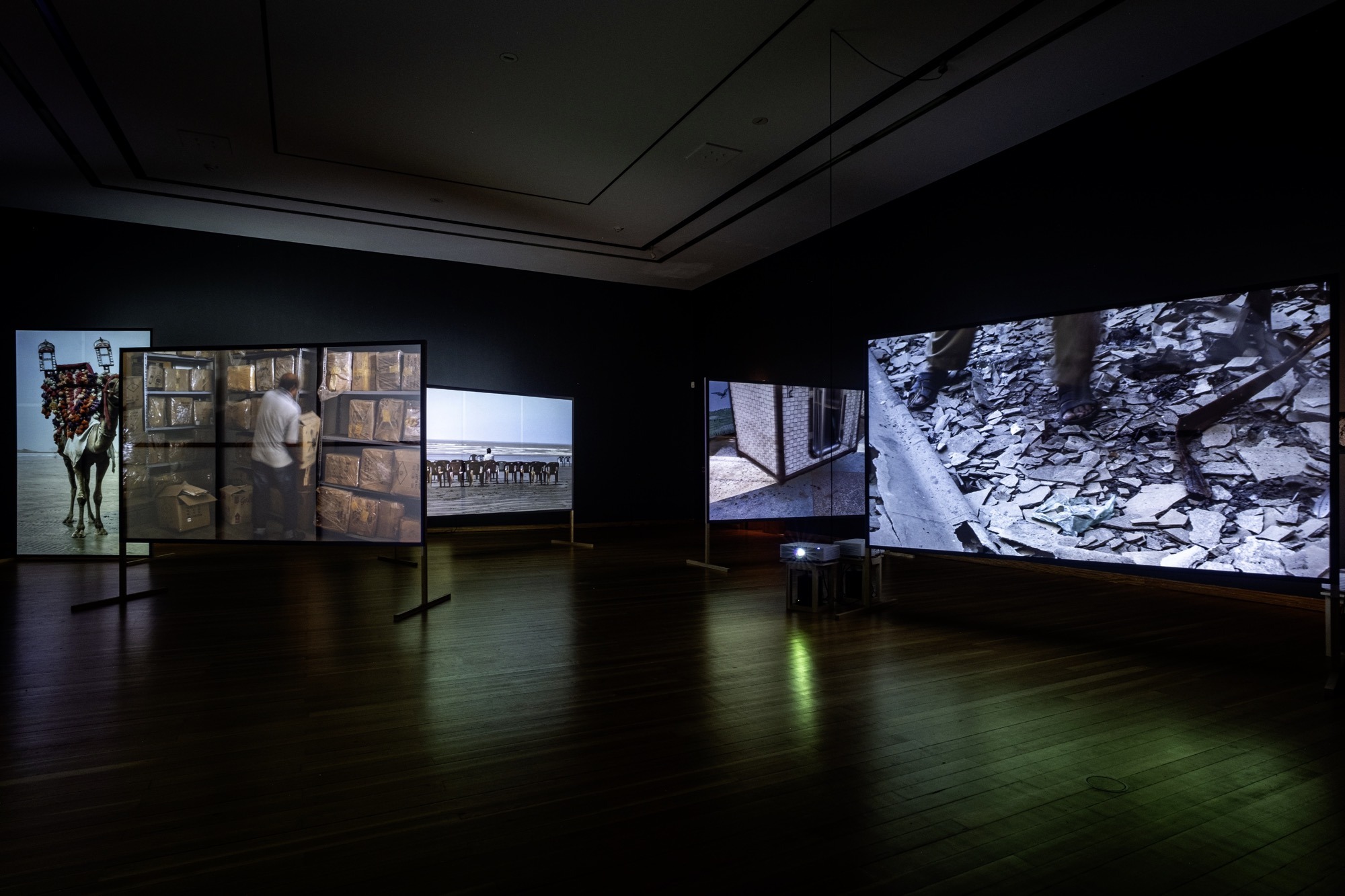
Bani Abidi, “‘Funland’ (Karachi Series II)”, 2014. Installation view Bani Abidi: They Died Laughing, Gropius Bau, Berlin, 2019. Photo: Mathias Völzke, courtesy the artist & Experimenter, Kolkata
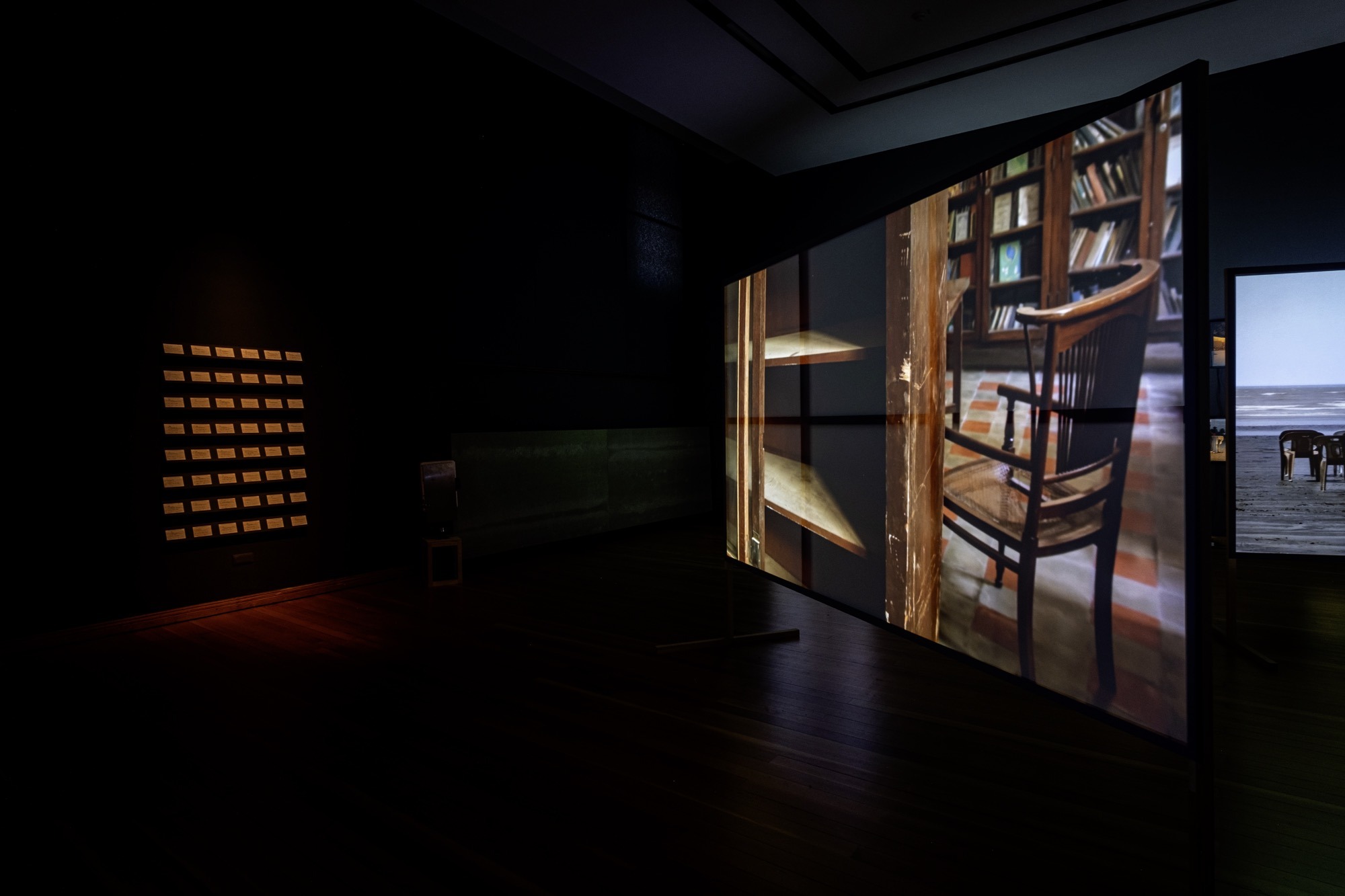
Bani Abidi, “‘Funland’ (Karachi Series II)”, 2014. Installation view Bani Abidi: They Died Laughing, Gropius Bau, Berlin, 2019. Photo: Mathias Völzke, courtesy the artist & Experimenter, Kolkata
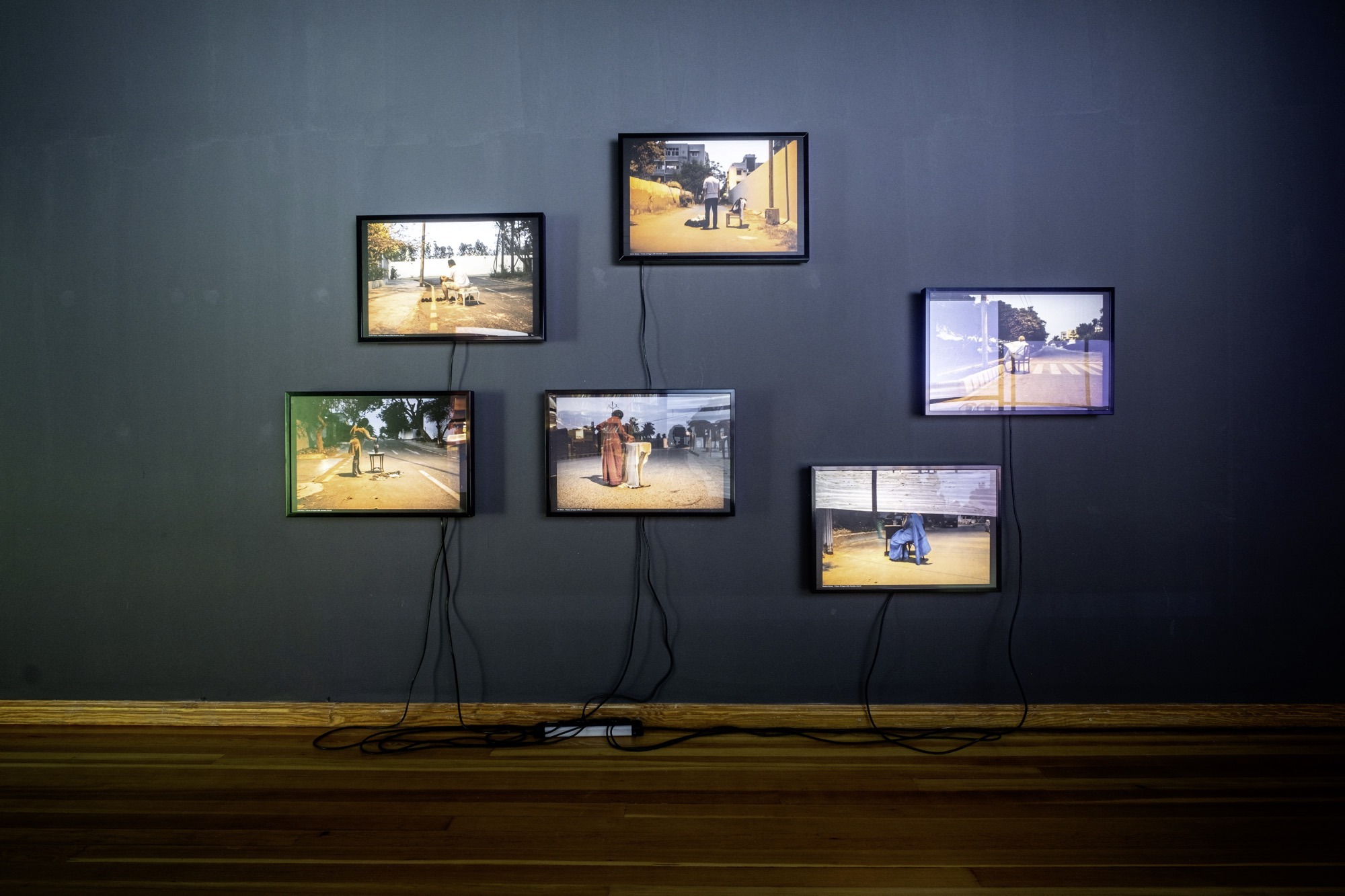
Bani Abidi, “Karachi Series I”, 2009. Installation view Bani Abidi: They Died Laughing, Gropius Bau, Berlin, 2019. Photo: Mathias Völzke, courtesy the artist & Experimenter, Kolkata
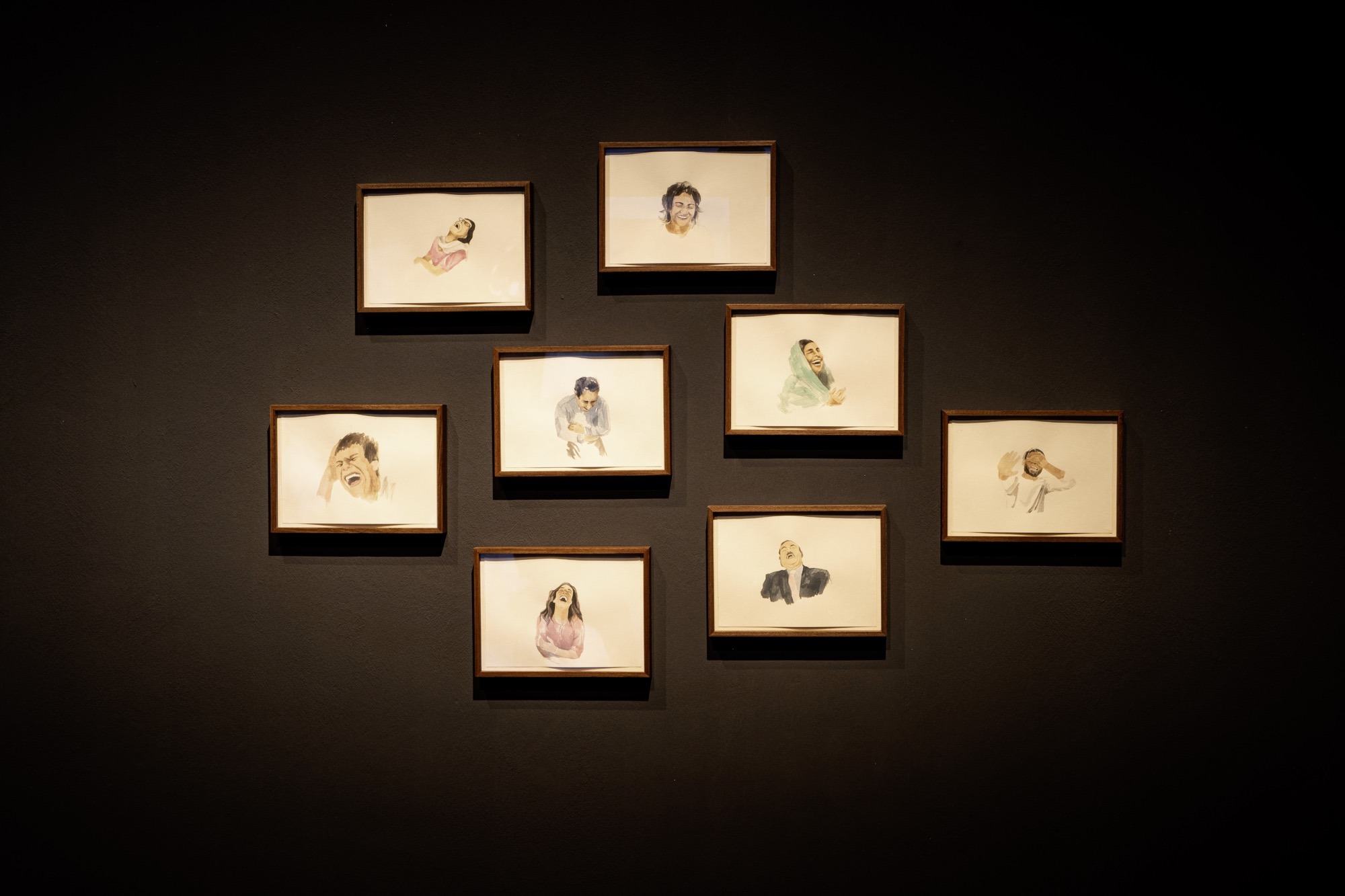
Bani Abidi, “And They Died Laughing”, 2016. Installation view Bani Abidi: They Died Laughing, Gropius Bau, Berlin, 2019. Photo: Mathias Völzke, courtesy the artist & Experimenter, Kolkata
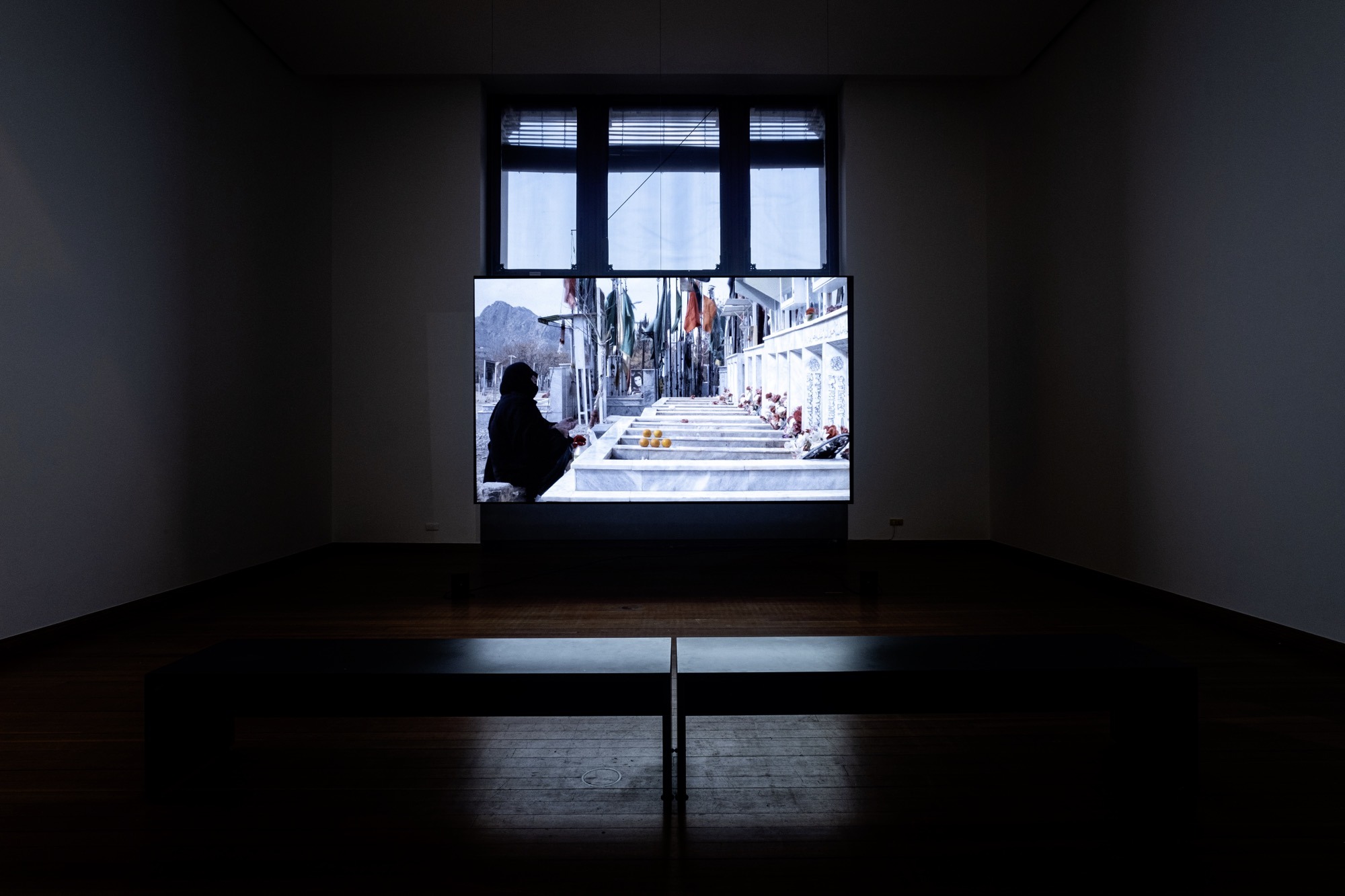
Bani Abidi, “The Lost Procession”, 2019. Installation view Bani Abidi: They Died Laughing, Gropius Bau, Berlin, 2019. Photo: Mathias Völzke, courtesy the artist & Experimenter, Kolkata
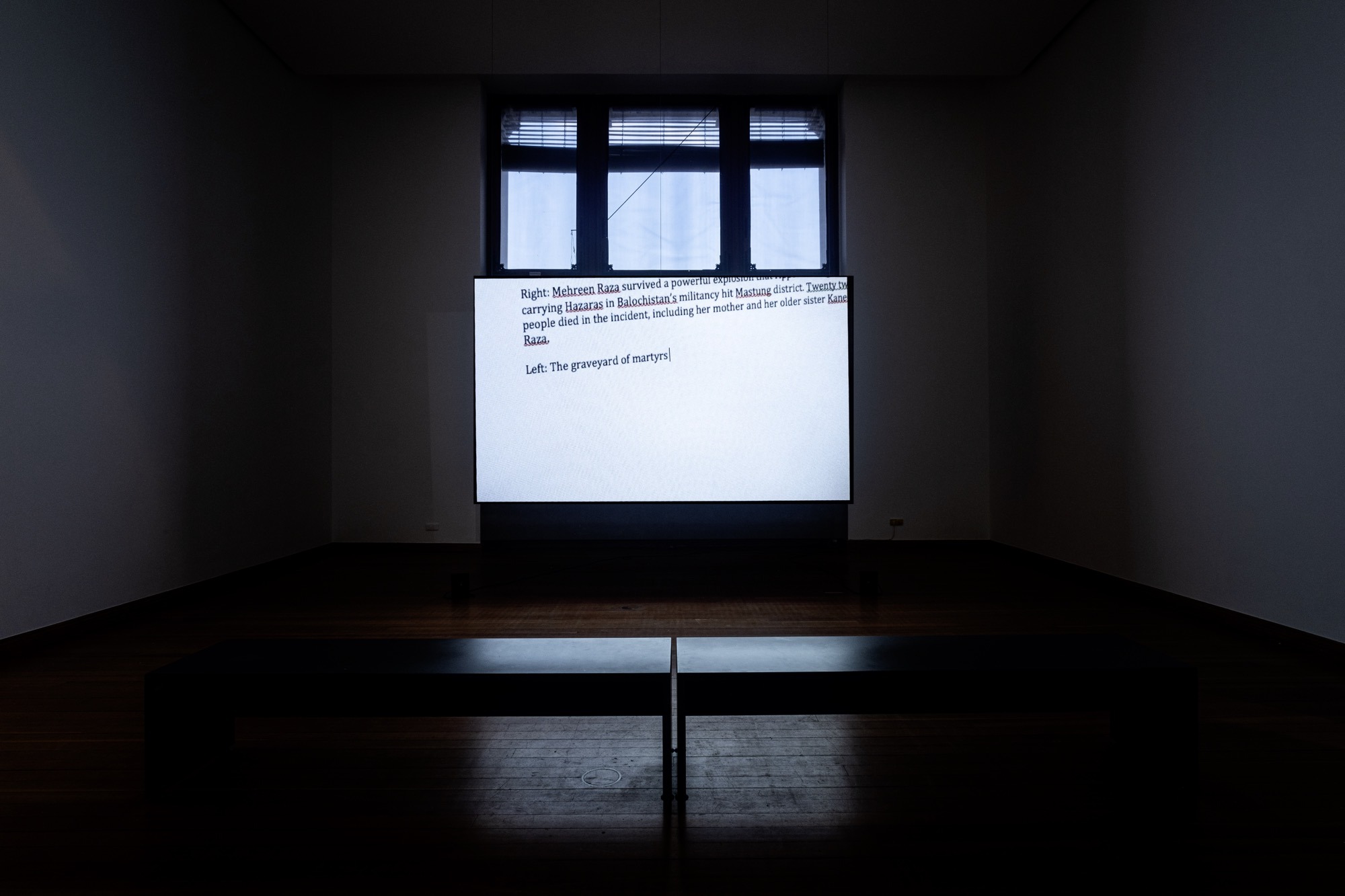
Bani Abidi, “The Lost Procession”, 2019. Installation view Bani Abidi: They Died Laughing, Gropius Bau, Berlin, 2019. Photo: Mathias Völzke, courtesy the artist & Experimenter, Kolkata
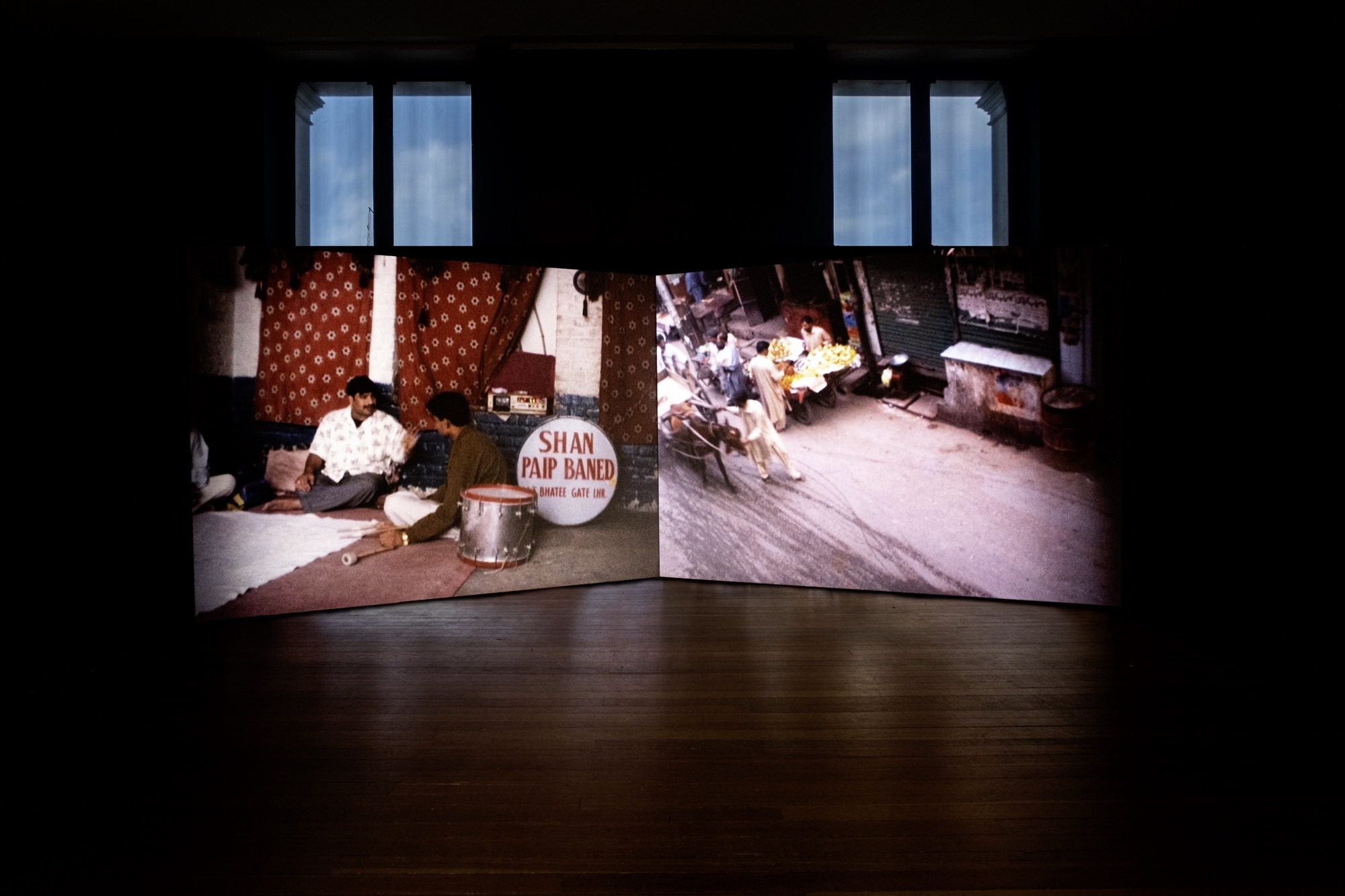
Bani Abidi, “Shan Pipe Band Learns The Star Spangled Banner”, 2004. Installation view Bani Abidi: They Died Laughing, Gropius Bau, Berlin, 2019. Photo: Mathias Völzke, courtesy the artist & Experimenter, Kolkata
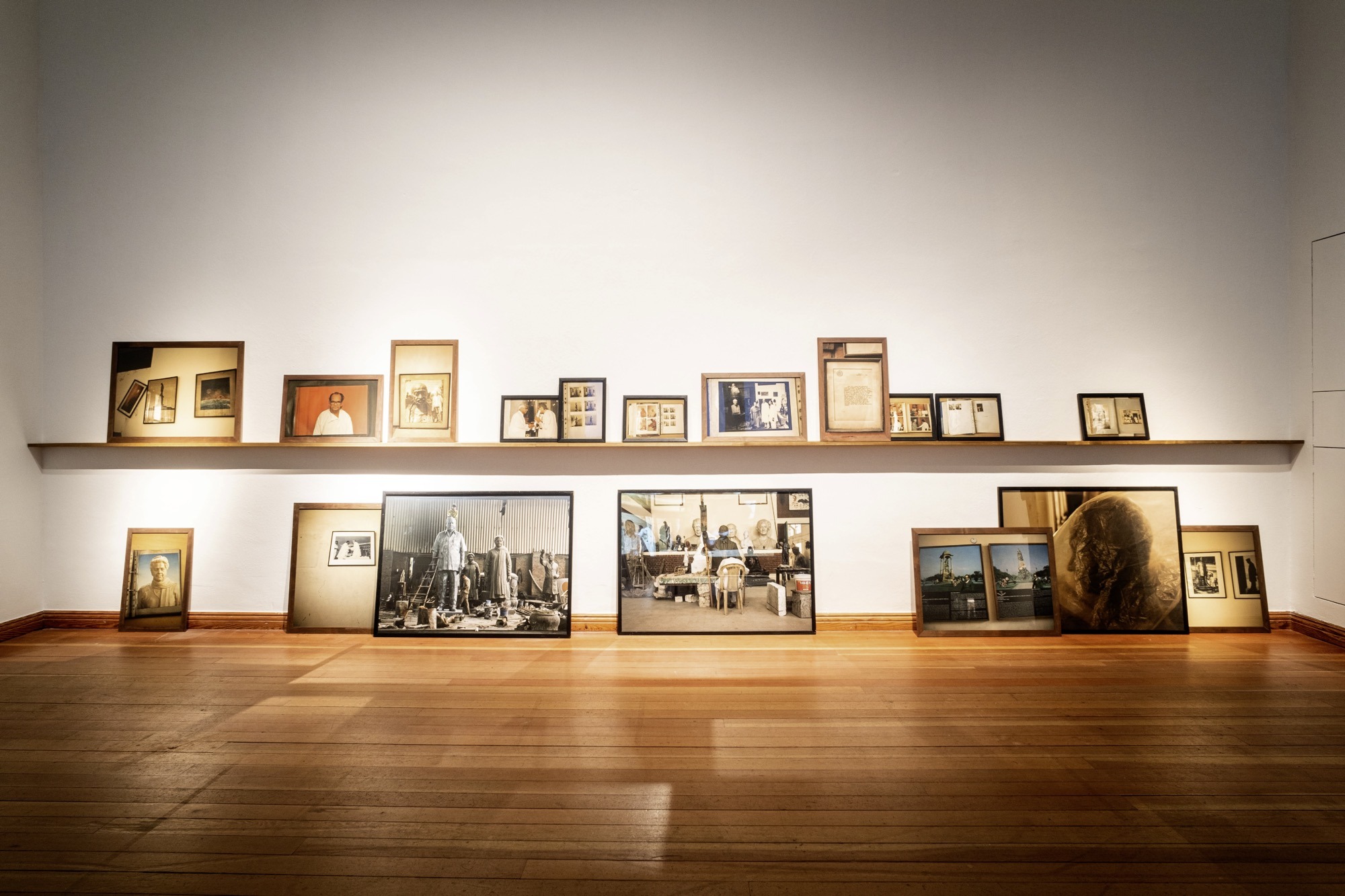
Bani Abidi, “A Proposal for a Man in the Sea”, 2012. Installation view Bani Abidi: They Died Laughing, Gropius Bau, Berlin, 2019. Photo: Mathias Völzke, courtesy the artist & Experimenter, Kolkata
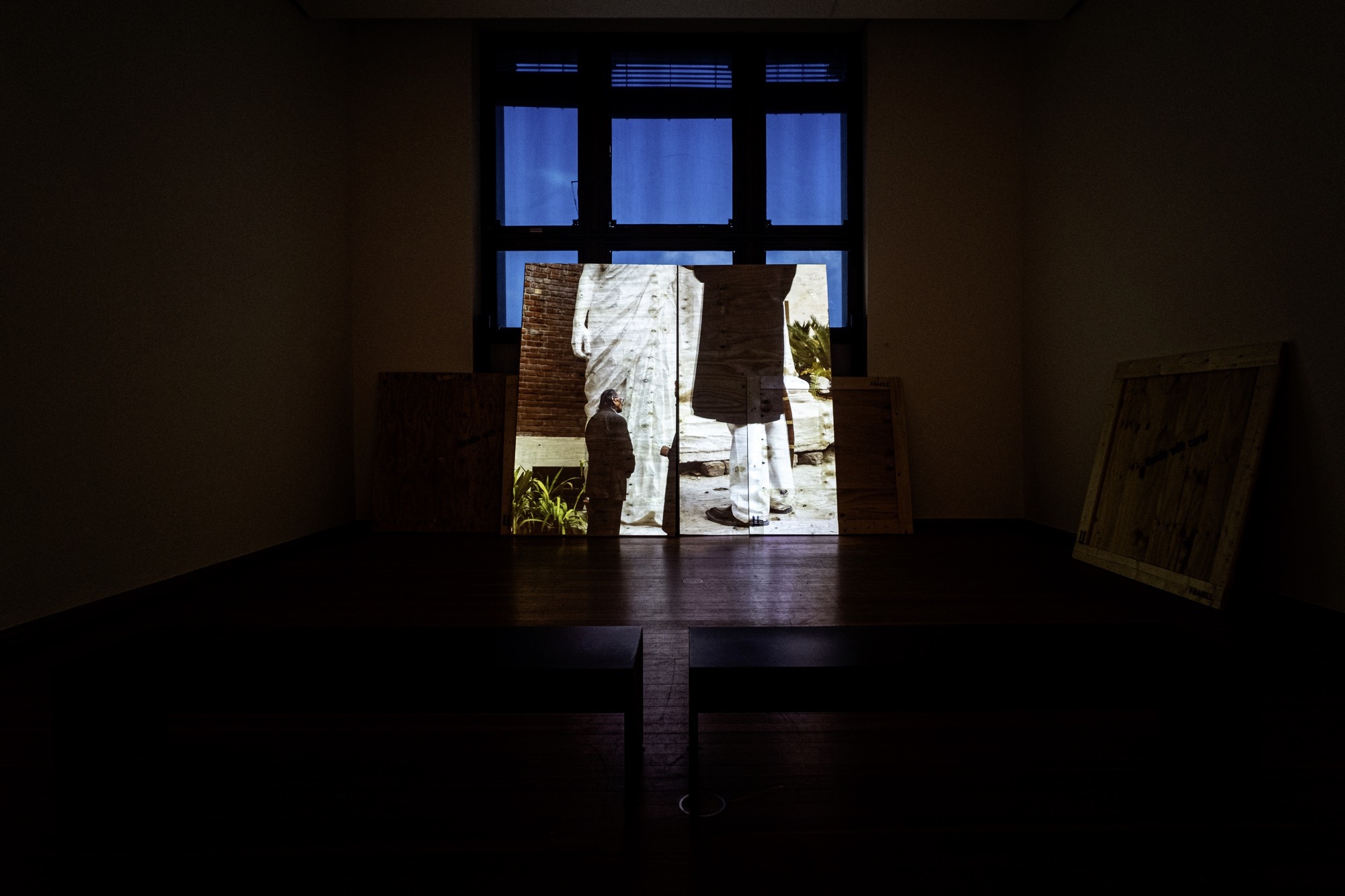
Bani Abidi, “Death at a 30 Degree Angle”, 2012. Installation view Bani Abidi: They Died Laughing, Gropius Bau, Berlin, 2019. Photo: Mathias Völzke, courtesy the artist & Experimenter, Kolkata
“Absurdity is rife all around us, in the way political realities are unfolding across the world. I think it’s quite poignant to be able to laugh at what we bear witness to, things that are dysfunctional and deeply illogical. There is a certain agency in laughter. Like the ‘village idiot’ or the mythical trickster who is the disobedient wise man, who just laughs because he knows better. Otherwise, we would all just succumb to a troublesome reality.” — Bani Abidi
Bani Abidi is known for her distinctive approach to filmmaking, which derives from the dark absurdities of everyday life. Opening on 5 June 2019, They Died Laughing is an extensive presentation of Abidi’s works, bringing together moving image and print-based works that span two decades.
Over the past years Abidi has developed a characteristic filmmaking language – quietly humorous, often engaging non-actors, choreographing crowds, examining security infrastructure in daily life, recording the ridiculous gestural routines of bureaucracy, power and nationalism through moments that are scripted and directed.
Abidi often uses video as her tool for mnemonic recall while embedding the medium with a poetic function and layers of fiction. Currently based in Berlin and Karachi, she assumes the role of a storyteller and urban archaeologist in telling the stories of cities she has lived in. Fictional narratives traverse individual experiences and ask complex questions on patriotism, framed by the historic power struggles and geopolitical relations between neighbouring nation-states India and Pakistan. In her early video works, the artist uses performance with humour and ironic role play to discuss and explore the regimes of border politics.
In later works, we see Bani Abidi develop cinematic strategies to capture the lived drama of cities, particularly Lahore and Karachi. Her work Funland Karachi Series II (2013–14) presents spectral scenes of a library of censored books, a burnt down cinema from the 1950s, and a vacant amusement park located next to a construction site awaiting the tallest skyscraper to be built. In other works, protagonists such as a retired speechwriter, an 80 year-old sculptor and a Pakistani youth intending to break a world record take centre stage. They spin tales of ambition and failure, while thematising the relationship between state power, patriotism and megalomania.
For the forthcoming exhibition at the Gropius Bau, Bani Abidi will develop a new project, The Lost Procession, based on the experiences of the persecuted Hazara community from Quetta, capital of the Pakistani province of Balochistan, who have fled to Germany in recent years. While Abidi sketches encounters between these inhabited landscapes, she focuses on themes including expropriation, refuge and captivity. This project is commissioned by Sharjah Art Foundation, where Bani Abidi will have a solo exhibition in October 2019, co-curated by Hoor Al-Qasimi and Natasha Ginwala.
In the 30th year since the Fall of the Berlin Wall, They Died Laughing forms part of an series of exhibitions presented by the Gropius Bau that address the subject of division and how border politics impact our contemporary global reality, while also referencing the history embedded within the building. In the post-war era, the Berlin Wall was erected directly alongside the north facade of the building, situating the Gropius Bau in the vicinity of the border crossing and in the midst of political conflict. This prominent location provides a framework for wider discourse on the physical and psychological boundaries that have shaped societies, bringing to the fore new possibilities, whether they are political or ideological boundaries, or boundaries of perception on subjects such as gender and identity.
Curated by Natasha Ginwala
Funded by the German Federal Cultural Foundation
About Bani Abidi
(b. 1971 in Karachi, Pakistan)
For twenty years Bani Abidi has been developing a distinctive approach to the moving image. She turns to hidden narratives of cities and people, blurring the edges of fictional and literary accounts by accessing the absurd potential of reality. Abidi’s videos, drawings and photographic works often stage minor protagonists who shape history as part of everyday living and small acts of resistance within broader dynamics of state power and nationalism. Abidi studied visual art at the National College of Arts in Lahore and at the School of the Art Institute of Chicago.
Selected solo exhibitions include Neuer Berliner Kunstverein, Berlin (2017); Kunsthaus Hamburg, Hamburg (2016); Dallas Contemporary, Dallas, (2015); Kunstverein Arnsberg (2012) Experimenter Gallery, Kolkata; and Baltic Center for Contemporary Art, Newcastle (2011). Her works have been shown in numerous international group exhibitions and biennales including Lahore Biennale 01 (2018), Khoj International Artists’ Association (2019), Kiran Nader Museum of Art, New Delhi (2017); Edinburgh Arts Festival Commissions 2016; MoMA, New York (2015); AAN Gandhara art Space (2016), Karachi; Aga Khan Museum, Toronto (2014/15); 8th Berlin Biennale for Contemporary Art, Berlin (2014); Guggenheim Museum, New York (2013); dOCUMENTA (13), Kassel (2012); Kochi-Muziris Biennial, Kochi (2012); Marrakech Biennale (2009); Lyon Biennale (2009); 7th Gwangju Biennale (2008), among others.
Abidi participated in the DAAD Artists-in-Berlin programme in 2011–12. Since then she lives and works between Berlin and Karachi.
Bani Abidi is known for her distinctive approach to filmmaking, which derives from the dark absurdities of everyday life. Opening on 5 June 2019, They Died Laughing is an extensive presentation of Abidi’s works, bringing together moving image and print-based works that span two decades.
Over the past years Abidi has developed a characteristic filmmaking language – quietly humorous, often engaging non-actors, choreographing crowds, examining security infrastructure in daily life, recording the ridiculous gestural routines of bureaucracy, power and nationalism through moments that are scripted and directed.
Abidi often uses video as her tool for mnemonic recall while embedding the medium with a poetic function and layers of fiction. Currently based in Berlin and Karachi, she assumes the role of a storyteller and urban archaeologist in telling the stories of cities she has lived in. Fictional narratives traverse individual experiences and ask complex questions on patriotism, framed by the historic power struggles and geopolitical relations between neighbouring nation-states India and Pakistan. In her early video works, the artist uses performance with humour and ironic role play to discuss and explore the regimes of border politics.
In later works, we see Bani Abidi develop cinematic strategies to capture the lived drama of cities, particularly Lahore and Karachi. Her work Funland Karachi Series II (2013–14) presents spectral scenes of a library of censored books, a burnt down cinema from the 1950s, and a vacant amusement park located next to a construction site awaiting the tallest skyscraper to be built. In other works, protagonists such as a retired speechwriter, an 80 year-old sculptor and a Pakistani youth intending to break a world record take centre stage. They spin tales of ambition and failure, while thematising the relationship between state power, patriotism and megalomania.
For the forthcoming exhibition at the Gropius Bau, Bani Abidi will develop a new project, The Lost Procession, based on the experiences of the persecuted Hazara community from Quetta, capital of the Pakistani province of Balochistan, who have fled to Germany in recent years. While Abidi sketches encounters between these inhabited landscapes, she focuses on themes including expropriation, refuge and captivity. This project is commissioned by Sharjah Art Foundation, where Bani Abidi will have a solo exhibition in October 2019, co-curated by Hoor Al-Qasimi and Natasha Ginwala.
In the 30th year since the Fall of the Berlin Wall, They Died Laughing forms part of an series of exhibitions presented by the Gropius Bau that address the subject of division and how border politics impact our contemporary global reality, while also referencing the history embedded within the building. In the post-war era, the Berlin Wall was erected directly alongside the north facade of the building, situating the Gropius Bau in the vicinity of the border crossing and in the midst of political conflict. This prominent location provides a framework for wider discourse on the physical and psychological boundaries that have shaped societies, bringing to the fore new possibilities, whether they are political or ideological boundaries, or boundaries of perception on subjects such as gender and identity.
Curated by Natasha Ginwala
Funded by the German Federal Cultural Foundation
About Bani Abidi
(b. 1971 in Karachi, Pakistan)
For twenty years Bani Abidi has been developing a distinctive approach to the moving image. She turns to hidden narratives of cities and people, blurring the edges of fictional and literary accounts by accessing the absurd potential of reality. Abidi’s videos, drawings and photographic works often stage minor protagonists who shape history as part of everyday living and small acts of resistance within broader dynamics of state power and nationalism. Abidi studied visual art at the National College of Arts in Lahore and at the School of the Art Institute of Chicago.
Selected solo exhibitions include Neuer Berliner Kunstverein, Berlin (2017); Kunsthaus Hamburg, Hamburg (2016); Dallas Contemporary, Dallas, (2015); Kunstverein Arnsberg (2012) Experimenter Gallery, Kolkata; and Baltic Center for Contemporary Art, Newcastle (2011). Her works have been shown in numerous international group exhibitions and biennales including Lahore Biennale 01 (2018), Khoj International Artists’ Association (2019), Kiran Nader Museum of Art, New Delhi (2017); Edinburgh Arts Festival Commissions 2016; MoMA, New York (2015); AAN Gandhara art Space (2016), Karachi; Aga Khan Museum, Toronto (2014/15); 8th Berlin Biennale for Contemporary Art, Berlin (2014); Guggenheim Museum, New York (2013); dOCUMENTA (13), Kassel (2012); Kochi-Muziris Biennial, Kochi (2012); Marrakech Biennale (2009); Lyon Biennale (2009); 7th Gwangju Biennale (2008), among others.
Abidi participated in the DAAD Artists-in-Berlin programme in 2011–12. Since then she lives and works between Berlin and Karachi.
